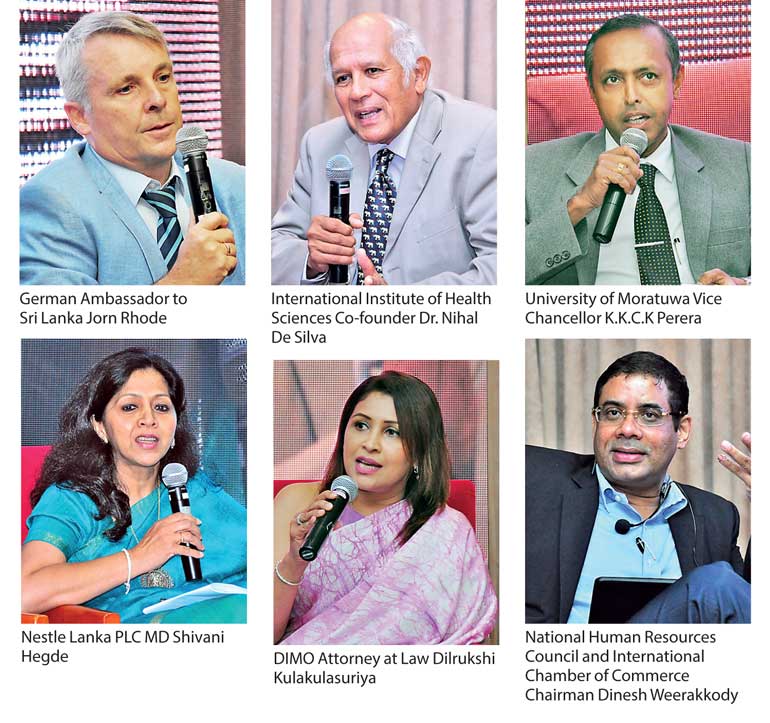Wednesday Feb 18, 2026
Wednesday Feb 18, 2026
Monday, 19 February 2018 00:00 - - {{hitsCtrl.values.hits}}
 By Shannon Jayawardena
By Shannon Jayawardena
The lessons from Germany’s dual Vocational Training System discussion forum held last week highlighted the importance of effective Vocational and Educational Systems (VETs) in Sri Lanka as it contributes towards compatible employability in the country.
Several professionals from different fields were invited to share their insights and knowledge on how to further improve the sector while German Ambassador to Sri Lanka Jorn Rhode emphasised on ways that the country could learn from Germany.
Rhode stated that: “What you pay is what you get so it is important to give a good compensation to the professionals in the field in order to make the system more attractive. Secondly the participation of the industry is very important. If the industries come together and put up training schools, then maybe it could help better the VETs in the country.
The panel was moderated by National Human Resources Council and International Chamber of Commerce Chairman Dinesh Weerakkody while DIMO Attorney at Law Dilrukshi Kulakulasuriya, International Institute of Health Sciences Co-founder Dr. Nihal De Silva, University of Moratuwa Vice Chancellor K.K.C.K. Perera, Nestle Lanka PLC Managing Director Shivani Hegde and Ambassador Rhode were the panellists.
Kulakulasuriya said: “We cannot copy paste what has been successful in one country to another. Our association with Germany goes way back and since, we have started our first training system that provides state-of-the-art working models and access to wide database information. We encourage students to research, share and then apply it to their work content.”
The dual training system is recognised internationally due to its combination of training that is embedded in a real life work environment. Hence it helps young professionals to build their capabilities and skills to a great extent.
Sharing advice on how the country and its universities could better themselves through vocational training Perera stressed on the fact that: “We need to make sure that we do not remain static anymore but be dynamic. The professional degrees have a mandatory component of industrial training. Therefore we need to observe and enhance.”
In Germany about 50% of all school leavers go through vocational training provided by business organisations which globally is considered the best way to acquire a skilled group of employees who will be assets in any business.
In Sri Lanka however, there are abundant skills but are not being evaluated and put to use in the right places. There is a low compatible employability rate mainly due to these reasons.
Dr. De Silva being in the business of training healthcare professionals, including nurses, physiotherapists and hospital administrators said: “We have about 50-60% of adequately educated A/L students who can’t enter universities therefore we are training some of them for the healthcare industry because there is a worldwide shortage of healthcare personnel.
There is so much of talent in the country that needs to be channelled into organisations that could train the youth and other professionals to move up in Sri Lanka’s fast growing market. Vocational training targets at enhancing all skills that one processes and builds the individual’s capacities.
Hegde stated: “I think the issue of dual education is no longer a matter of choice. It is clearly an imperative. The rapid change of the social environment creates a massive challenge for the academies to adopt themselves in accordance. It’s also about diversity inclusion which the dual vocation system can help us with.”